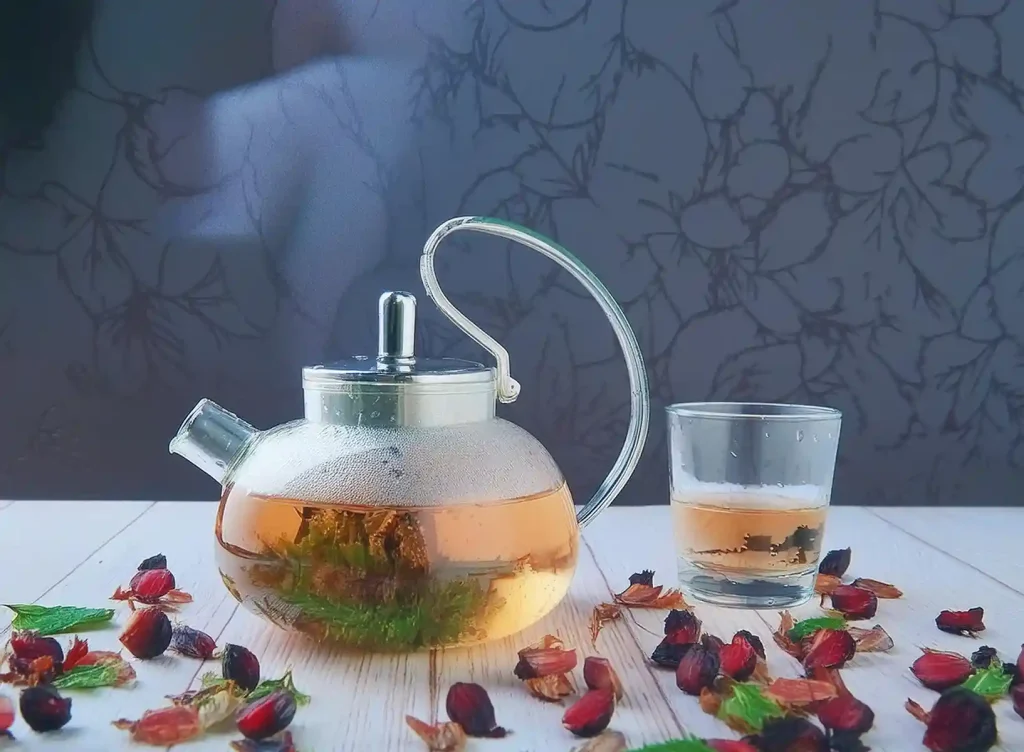Tea has long been a cherished part of human culture, woven into the fabric of daily life, rituals, and health practices across the globe. Among the vast array of teas available, herbal tea holds a special place. Unlike traditional teas, which are derived from the Camellia sinensis plant, herbal teas are infusions made from a diverse array of botanicals, including herbs, flowers, roots, and fruits. This article explores the enchanting world of herbal tea, drawing from my own experiences and offering suggestions for others to enjoy this delightful beverage.
Herbal Tea: A Personal Journey
My journey with herbal tea began several years ago during a particularly stressful period in my life. Like many, I turned to coffee and black tea to stay alert, but the high caffeine content left me jittery and sleepless. A friend recommended chamomile tea as a natural remedy for relaxation and better sleep. Despite my doubts, I was desperate enough to give it a shot.
The first sip of chamomile tea was a revelation. The subtle floral notes and gentle warmth had an immediate calming effect. That night, I experienced the most restful sleep I had had in months. This simple, soothing beverage sparked a curiosity and led me down a path of exploration into the diverse and beneficial world of herbal teas.
What is Herbal Tea?
Herbal teas, also known as tisanes, are caffeine-free beverages made by steeping various parts of plants in hot water. Every herbal tea has a distinct flavor and possible health advantages. Here are some popular herbal teas and their traditional uses:
- Chamomile: Known for its calming properties, chamomile tea is often consumed to promote relaxation and sleep. Its gentle, apple-like flavor makes it a favorite evening beverage.
- Peppermint: With its refreshing and invigorating taste, peppermint tea is commonly used to aid digestion and relieve headaches. The menthol in peppermint provides a cooling sensation that can be particularly soothing for the stomach.
- Rooibos: Originating from South Africa, rooibos tea is rich in antioxidants and has a naturally sweet, nutty flavor. It is often consumed to support overall health and wellness.
- Ginger: Spicy and aromatic, ginger tea is renowned for its digestive benefits and ability to alleviate nausea. It is also known for its anti-inflammatory qualities.
- Hibiscus: This vibrant red tea is tart and tangy, similar to cranberry. Hibiscus tea is rich in vitamin C and antioxidants, making it a popular choice for boosting the immune system.
- Lavender: Often blended with other herbs, lavender tea has a fragrant, floral flavor. It is used for its calming effects and to reduce anxiety and stress.
The Benefits of Herbal Tea
Herbal teas offer a range of potential health benefits, many of which I have personally experienced. The following are some of the main benefits:
- Stress Reduction and Relaxation: One of the most significant benefits I have found with herbal teas is their ability to promote relaxation and reduce stress. Chamomile and lavender teas, in particular, have become staples in my evening routine. The simple act of brewing a cup of these calming teas creates a ritual that signals my body to unwind and prepare for rest.
- Improved Digestion: Peppermint and ginger teas have been lifesavers for my digestive health. After heavy meals or during times of digestive discomfort, a cup of peppermint tea helps to ease bloating and gas. Ginger tea, with its warming properties, has been particularly effective in alleviating nausea and indigestion.
- Immune Support: Hibiscus tea, with its high vitamin C content, has been a go-to for me during cold and flu season. Regularly incorporating hibiscus tea into my diet has helped to strengthen my immune system and reduce the severity of seasonal illnesses.
- Antioxidant Boost: Rooibos and hibiscus teas are rich in antioxidants, which help to combat free radicals and reduce oxidative stress. Including these teas in my daily routine has provided a natural way to support my overall health and protect against chronic diseases.
Brewing the Perfect Cup of Herbal Tea
Making herbal tea is an art that involves more than just pouring hot water over herbs. Through trial and error, I have discovered a few tips and techniques to enhance the flavor and benefits of herbal tea:
- Quality Ingredients: Always opt for high-quality, organic herbs to ensure the best flavor and health benefits. Loose-leaf teas tend to be superior to tea bags, as they contain whole herbs rather than processed dust and fannings.
- Proper Steeping: Different herbs require different steeping times to release their full flavor and benefits. Generally, herbal teas should be steeped for 5-10 minutes, but it’s essential to follow specific instructions for each type of tea.
- Water Temperature: Unlike traditional teas, herbal teas can be brewed with boiling water without becoming bitter. However, delicate herbs like chamomile and lavender benefit from slightly cooler water to preserve their subtle flavors.
- Experiment with Blends: Don’t be afraid to mix different herbs to create your unique blends. For instance, I enjoy combining peppermint and chamomile for a refreshing yet calming tea, or rooibos and vanilla for a naturally sweet treat.
- Sweeten Naturally: If you prefer your tea sweetened, consider using natural sweeteners like honey, stevia, or maple syrup. These add a touch of sweetness without overpowering the tea’s natural flavors.
Herbal Tea Recipes to Try
To get you started on your herbal tea journey, here are a few of my favorite recipes:
- Calming Chamomile Blend This blend is perfect for winding down after a long day and preparing for a restful night’s sleep.
- Ingredients:
- 2 teaspoons dried chamomile flowers
- 1 teaspoon dried lavender buds
- 1 teaspoon dried lemon balm
- Instructions:
- Put the herbs in an infuser or teapot.
- Over the herbs, pour 8 ounces of boiling water.
- Steep for 5-7 minutes.
- Strain and enjoy, optionally adding a teaspoon of honey for sweetness.
- Ingredients:
- Digestive Aid Tea A soothing blend to support digestion and relieve discomfort after meals.
- Ingredients:
- 1 teaspoon dried peppermint leaves
- 1 teaspoon dried fennel seeds
- 1 teaspoon dried ginger root
- Instructions:
- Put the herbs in an infuser or teapot.
- Over the herbs, pour 8 ounces of boiling water.
- Steep for 7-10 minutes.
- Strain and enjoy, optionally adding a slice of lemon for extra flavor.
- Ingredients:
- Immune Boosting Hibiscus Tea A vibrant and refreshing tea to support your immune system.
- Ingredients:
- 2 teaspoons dried hibiscus flowers
- 1 teaspoon dried rose hips
- 1 teaspoon dried elderberries
- Instructions:
- In a teapot or infuser, combine the herbs.
- Over the herbs, pour 8 ounces of boiling water.
- Steep for 10 minutes.
- Strain and enjoy, optionally sweetening with a bit of honey.
- Ingredients:
Tips for Incorporating Herbal Tea into Your Daily Routine
Incorporating herbal tea into your daily life can be a rewarding and beneficial practice. Here are some pointers to get you going:
- Afternoon Pick-Me-Up: Instead of reaching for a caffeinated beverage, opt for a cup of rooibos or hibiscus tea. These teas provide a natural energy boost without the jitters associated with caffeine.
- Evening Wind-Down: Create a bedtime ritual with calming teas like chamomile or lavender. This can assist in letting your body know when it is time to unwind and get ready for bed.
- On-the-Go: Herbal teas can be enjoyed hot or cold, making them a versatile option for hydration throughout the day. Brew a large batch and store it in the refrigerator for a refreshing iced tea.
- Experiment and Explore: The world of herbal tea is vast and varied. Don’t be afraid to try new herbs and blends to discover what you enjoy the most. Joining a tea subscription service can also be a fun way to explore different flavors and expand your palate.
Whether you are new to herbal tea or a seasoned enthusiast, there is always something new to discover in this beautiful world. I encourage you to explore different herbs, experiment with blends, and create your own tea rituals. The journey of herbal tea is a personal and rewarding one, filled with endless possibilities and opportunities for wellness.
So, brew yourself a cup, take a moment to savor the aroma and flavor, and let the magic of herbal tea enrich your life as it has mine.
Cheers to your health and happiness!

